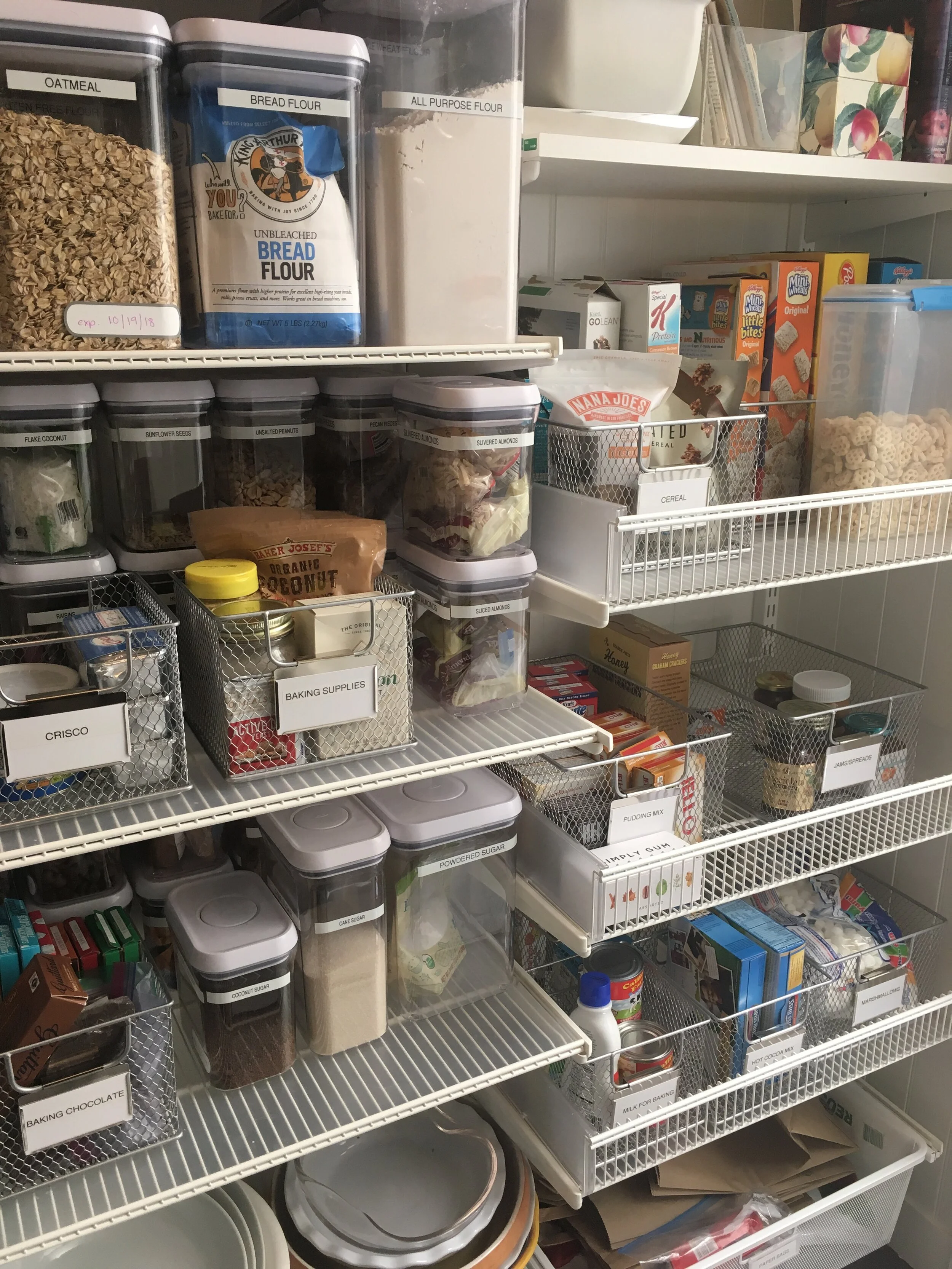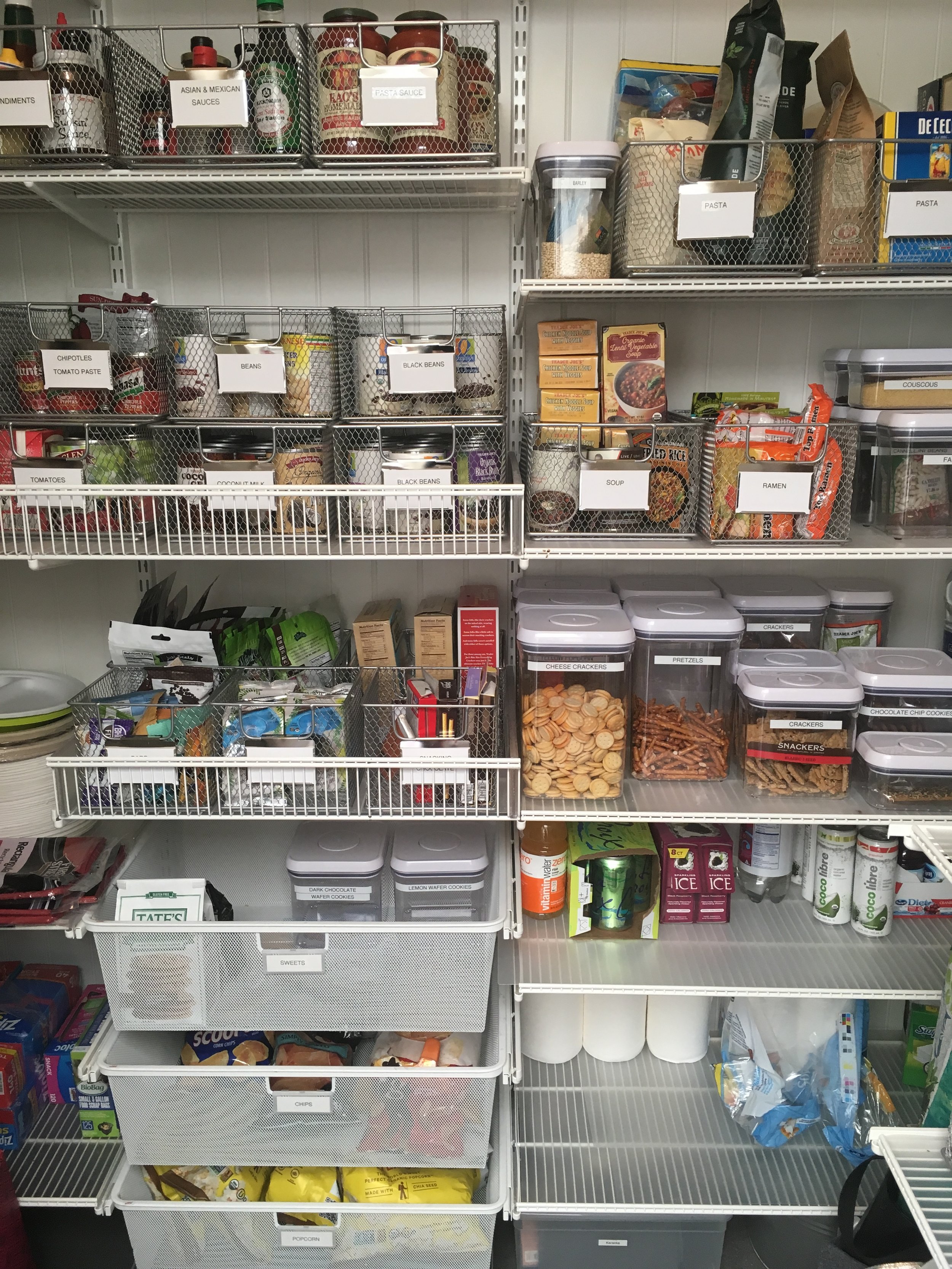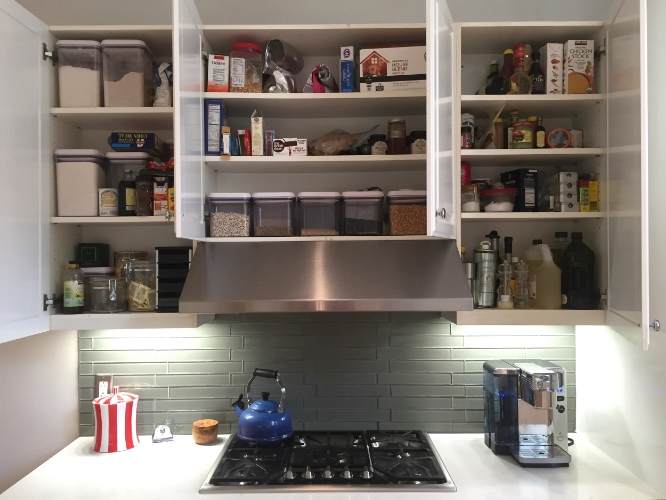So You Stockpiled Food... Now What? 4 Steps to A Sane Stockpile
Ok, let’s all take a deep breath. Coronavirus is here, and shelter in place orders are in effect. We are all finding a new normal, and it’s not easy, but we will figure this out one day at a time.
It is possible that, at some point in the past few weeks, you did a hard core stock up on nonperishable foods. This is a perfectly reasonable thing to have done!
But I’m here to sound the alarm: there is going to be food waste on an epic scale if those who stockpiled food during this crisis do not thoughtfully and intentionally manage their stashes.
How do I know?
To create this beautifully organized pantry, we threw out 3 full garbage bags of expired dry, canned, and boxed goods. And this pantry belongs to a client who cooks all the time.
I organize pantries and kitchen all the time. And with each and every client, I throw out a shocking, often guilt-inducing, amount of expired food. We’re talking garbage bags full, people.
So, I have reason to believe that in a time when people have purchased much more nonperishable food than they usually do, in a speedy and possibly not totally coherent manner, a lot of us will wake up 1-2 years from now and find a very large quantity of expired food lurking in our cabinets and pantries.
I hope I don’t need to tell you that food waste on this scale is both wasteful and unethical. People are losing their jobs, children can no longer rely on school meals, families are having a hard time finding enough items that are WIC approved, and we’re all dealing with supermarket stock outs. To have contributed to these very real problems… and then not even eaten the food before it went bad? That’s pretty horrifying.
I should also not have to tell you this, but I will just to be sure: you cannot donate expired food. Not to food banks, not to animal shelters, not anywhere.
So, we bought all this food, and we want to manage it responsibly. Now what?
1) Assess what you have.
Bring everything together and take a good hard look at all of it. What did you buy? How much? Where and how are you storing it? Are these things that the members of your household will actually eat? Are these things that you can use to create actual meals?
2) Assess what you need.
How much do you need to have on hand to feed your family during this particular crisis? Take into account that although supply chains are slowing, grocery stores are and will likely remain open. Remember that a stockpile is not permanent, because even shelf stable food eventually expires. So, even if the pandemic ends next week, you’ll still need to restock before the next crisis.
3) Donate any excess.
If you have more food than you can reasonably expect to eat, or food that no one in your family will voluntarily consume, the time to donate it is NOW, while it still has a nice long shelf life. Yes, it will take some effort to coordinate a no-contact drop off to a food bank, but consider this part of your civic duty to ensure the health of your community!
4) Make a plan.
Now that you have an amount of food on hand that you can reasonably expect to eat, you need to create a plan to ensure that you do actually eat it. There are a couple ways to go about this, and you can use either one or both together according to your family’s needs.
First, you can slowly use up your stash during the current crisis. Make a list of dishes and/or meals that use the ingredients you have, and mix them into your repertoire.
Second, you can rotate your stash after the crisis is over. Most disaster preparedness agencies recommend switching over food stockpiles at least once a year, so put it on your calendar! Then, when that date comes up, move the stockpile into your regular rotation and replace it with new items.
I am rarely so strident about organizing principles, because I do believe that every family is different and should adjust their environment to meet their needs. However, I find food waste to be incredibly abhorrent, especially at this scale and especially if it can be avoided.
So please, join me in creating a sane food stockpile, and use the excess to help people in your community! If you feel overwhelmed at the thought of organizing your pantry, I can help. Find out more about my virtual organizing service, and schedule your home organizing consultation!
To your health,
LMW









Here’s the thing about the junk drawer, though. It doesn’t actually work all that well to help you find those things you’ve placed inside it.